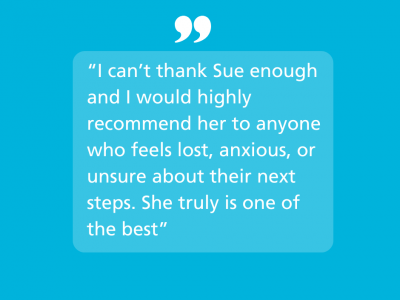- Home
- Anxiety
- Depression
- Emotional Eating
- Living with a long term health condition - Our Talking Health team
- Loneliness
- Menopause
- Mindfulness
- Obsessive compulsive disorder (OCD)
- Panic Attacks
- Phobias
- Pregnancy & Parenthood
- Prolonged Grief (Grieving)
- PTSD
- Sleep Difficulties
- Stress
- Veterans mental health
- Needs We Can and Cannot Meet
- Cognitive Behavioural Therapy (CBT)
- Eye Movement Desensitisation & Reprocessing (EMDR)
- Employment Support
- Counselling for Depression
- Online Self-help
- Mindfulness
- Wellbeing Workshops
- Join the team
- What to expect at your first appointment
- Testimonials
- Talking Health team
- Learn about mental health
- FAQs
- Mental Health Resources
- Blog
- Video Appointments
- Supporting someone through TALKWORKS: A guide for carers and loved ones
- Your feedback
- Making contact if you are deaf
- I need help now
Access support from TALKWORKS
Self-refer to TALKWORKSAccess support from TALKWORKS
Self-refer-
What we can help with
- Anxiety
- Depression
- Emotional Eating
- Living with a long term health condition - Our Talking Health team
- Loneliness
- Menopause
- Mindfulness
- Obsessive compulsive disorder (OCD)
- Panic Attacks
- Phobias
- Pregnancy & Parenthood
- Prolonged Grief (Grieving)
- PTSD
- Sleep Difficulties
- Stress
- Veterans mental health
Access support from TALKWORKS
Self-refer to TALKWORKS - How We Can Help You
- About Us
- Useful Resources
- Get in touch
- Self-refer
The best ways to cope with seasonal affective disorder in winter
The winter months are creeping in and the wet weather is back again. This time of year can leave some of us feeling less motivated than normal, with the nights getting longer, and sunlight hours reduced. We all can experience a day or two where we feel a bit down, or not quite ourselves. But what if this feeling persists and the low mood doesn’t improve? If you are noticing that mood changes are impacting on your day to day life, it could be time to get some professional help, as you may be experiencing Seasonal Affective Disorder (SAD). Below we take a look at what having SAD can look like, and what the best ways for coping are.
What is Seasonal Affective Disorder?
Seasonal affective disorder (SAD) is a type of depression that comes and goes in a seasonal pattern. People experiencing SAD may notice that certain kinds of weather can contribute to this. SAD is sometimes known as "winter depression" because the symptoms are usually more apparent and more severe during the winter.
What are the symptoms to look out for?
Symptoms for seasonal affective disorder can vary from person to person. While SAD is more commonly experienced in the winter, it can also impact people in summer months. Common symptoms to look out for include:
- A persistent low mood with thoughts of worthlessness
- A lack of motivation and loss of interest in everyday activities
- Tiredness and fatigue, with reduced activity levels
- Difficulty concentrating
- Appetite changes, contributing to weight loss or weight gain
- Sleep disturbance
If you are noticing any of these symptoms or feel you need some support, it is okay to reach out for help. Many people do not realise that lots of people experience SAD, and you are not alone in how you are feeling. Listen to Sarah’s story as she talks about how she has struggled with living with Seasonal Affective Disorder.
What treatment is available?
There are a number of different ways you can manage seasonal affective disorder, including getting outside in daylight hours, exercising, making plans with others and talking about how you are feeling.
Cognitive Behavioural Therapy (CBT) is an effective form of talking therapy to help treat anyone suffering with a common mental health problem, including depression. It can help us to recognise that we can challenge our thoughts and change our behaviours to improve our mood.
Here at TALKWORKS, we offer CBT as one of of our treatment options for anyone struggling with persistent low mood, depression, sleep deprivation or anxiety. Through using CBT, we can help identify the difficulties you are facing, then work with you to find a solution to help you feel better and more like yourself again.
If you would like to find out more information about CBT or any of our TALKWORKS services, you can visit our website and self-refer, or call us on 0300 555 3344.
Related Posts

Charlie thanks Sue for the employment support she received
Posted by Admin on 1 December, 2025
.png)
Simone shares her story and thanks TALKWORKS
Posted by Admin on 9 December, 2025

